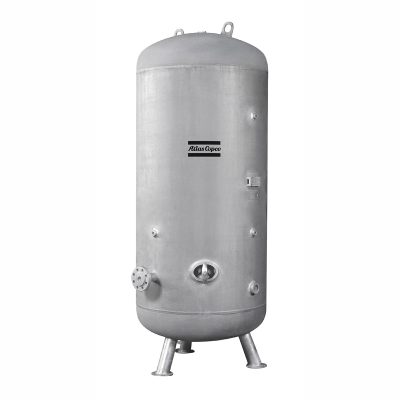Why use an Air Receiver?

Why use an Air Receiver? An Air Receiver, sometimes referred to as a Compressed Air Tank or a Pressure Vessel, is an integral part of any Compressed Air System.
The Air Receiver size has a direct impact on reliability and energy efficiency. The role of the Air Receiver (Pressure Vessel) is to:
- Act as a reservoir that can provide bursts of air to meet intermittent demands.
- Create a more stable pressure in the system.
- They also often separate condensate from the compressed air.
It is therefore important for receivers to be correctly sized for the specific system and to be resistant against corrosion.
Needless to say, Air Receivers from Air4u Group meet all these requirements.
What types of Air Receivers are available?
Smaller Air Compressors can be 'tank-mounted', which means that they come as a package and are mounted on top of the Air Receiver. This type of set-up is especially useful on sites where space is limited. Having a 'tank-mounted' Compressor can save on both space as well as initial installation costs associated with commissioning a stand-alone dryer. Small Compressors are offered with this option, but as you get up to larger Air Compressors, they are not suitable for tank-mounted options, as they become top heavy and could pose a safety risk.
The other option are floor mounted or stand-alone receivers which offer greater capacity. These are available as horizontal or, more commonly, vertical.
What size Air Receiver do I need?
We always recommend that the Air Receiver should be sized (in litres) to be a least 6-10 times the Compressor F.A.D. output in litres/second. An undersized Receiver causes the Compressor to cycle frequently in response to minor changes in pressure.
Air Receivers also need to be inspected regularly and are an important part of your Written Scheme of Examination (WSE). https://www.air4ultd.co.uk/what-is-a-written-scheme-of-examination/
To talk to one of our team about your Air Compressor requirements, please call 01903 257117 or email enquiries@air4ultd.co.uk
For more information about a Written Scheme of Examination, please see our blog: https://www.air4ultd.co.uk/what-is-a-written-scheme-of-examination/

